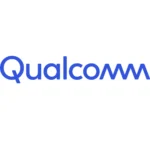Hyundai Motor Co. is making another attempt to regain its footing in China’s competitive electric vehicle market through a major capital injection into its joint venture with local partner BAIC. The companies will each invest $548 million into Beijing Hyundai, bringing the total investment to $1.1 billion.
The investment follows a similar capital boost of $942 million in 2022, highlighting Hyundai’s determination to reverse its declining fortunes in the world’s largest EV market. The Korean automaker’s sales in China have fallen to 239,000 units last year, just one-fifth of its 2016 peak.
Beijing Hyundai now operates only two of its original four plants after selling facilities in Beijing and Chongqing. The company plans to introduce its first dedicated EV model next year, targeting annual sales of 500,000 units in China. It also aims to begin mass production of extended-range electric vehicles by 2026.
China’s EV market, including plug-in hybrids, grew nearly 37% to 8.7 million units in the first 10 months of 2023, according to SNE Research. The country accounts for about 64% of global EV sales, making it crucial for automakers’ electrification strategies.
While Hyundai holds the third position in the global EV market outside China with a 9.3% share, it faces intense competition from local manufacturers like BYD in the Chinese market.



